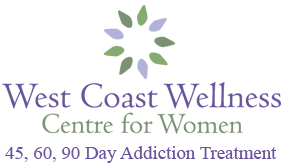How One Four Letter Word Can Cure a Painkiller Addiction
A simple but powerful healing method used for drug and alcohol rehabilitation
The big trend in addiction recovery today is rooted in neuroscience. So reading that one four letter word can cure a painkiller addiction might trigger some raised eyebrows.
There is some mind boggling work rising from the medical community, especially work done by best selling author and Psychiatrist Dr. Daniel G. Amen who uses SPECT brain imaging.
He’s a bit of a maverick in his field since Psychiatry, up until now has, as he puts it, thrown darts in the wind. Psychiatrists are the only medical specialists who rarely look at the organ they treat. Psychiatrists continue to make diagnoses the same way they did 100 years ago, based on clinical exams and symptom clusters.
Through SPECT brain imaging, he can assess the condition of the brain and then treat the brain based on an actual image of the brain. This is ground breaking work.
If you are interested in watching his compelling TED talk on his work, you can check it out here.
Dr. Amen is a major advocate of neuroplasticity, which refers to changes in neural pathways and synapses due to changes in behavior, environment, neural processes, thinking, and emotions.
Basically, the brain is adaptive, it’s not fixed, and this is in fact how one four letter word can cure a painkiller addiction.
Although our focus here is on painkiller addiction, mainly because there has been such a drastic surge in painkiller addiction, especially in users with no history of substance abuse or mental health issues but rather stemming from a pain management issue from accidents, illness etc. this simple but powerful healing method can be used for all drug and alcohol rehabilitation.
We also hone in on painkiller addiction side effects because they dramatically alter brain function, especially in it’s inability to naturally cope with pain, even after painkiller addiction detox.
Before you roll your eyes after reading how one four letter word can cure a painkiller addiction, we have some important studies to share with you.
Since 1999, Dr. Masaru Emoto, a Japanese Author, published Messages from Water and also appeared in the movie: What the Bleep Do We Know? His work proved that human consciousness has a profound effect on the molecular structure of water. And that positive or negative thoughts changed the structure of water, in different ways.
Dr. Bruce Lipton, a former medical school professor and research scientist offered groundbreaking experiments, and research that radically changed our understanding of life. In his book; The Biology of Belief, he shows that genes and DNA do not control our biology; that instead DNA is controlled by signals from outside the cell, including the energetic messages emanating from our positive and negative thoughts.
Have you guessed what that four letter word is yet? That’s right. It’s LOVE!
Running a women’s only rehab center in Vancouver, B.C. has allowed me to see this four letter word cure addiction to painkillers, cocaine, methamphetamine, alcohol, benzodiazepines, and the list goes on.
Since 1935, the majority of addiction recovery was born through the teachings of Bill W and the study of Alcoholics Anonymous, since then the evolution of addiction recovery has incorporated CBT, Art Therapy, Yoga, Timeline Therapy, and many other modalities to help addicts recover but nothing is more powerful that the art of love.
When a Woman struggling with addiction recovery walks through my doors, you can feel it right away. They are all void of all love. Self love or Received/Perceived love.
With the absence of love, we begin to decompose spiritually and we begin to try and fill the void and many of us fill the void with destructive behavior patterns.
Painkiller addiction is an effective way to curb the pain since the problem is an absence of love which leads to pain and painkillers kill the pain.
Renowned speaker and author, Dr. Gabor Mate, who has worked on the downtown east side of Vancouver for many years and who has worked with addicts, especially women addicts, many of which are street workers, never asks them; why the addiction but rather asks them; why the pain?
Many parents of loved one’s scratch their heads when they hear this. Often they will offer that their daughter was very loved and received everything she ever could have imagined but the absence of love is not always based in reality. In many cases it is viewed through a twisted lens and the addicts definition and expectation of love. It comes down to whether or not the observer perceives being loved or perceives being worthy of self love.
The trouble, in the science community, is there is no bench test for love. How does one quantify love?
Well, I can quantify love by the hundreds of results we get at our women’s only rehab center, every year. When Women cross our doors, they are angry, they are bitter, they are agitated and they are defeated.
Sure we implement the clinical continuum of care but what I have witnessed over the past ten years of working with Women in recovery is that by sending them unconditional love they begin to change. Their eyes brighten up, their posture improves, they begin to smile and they become lighter and more connected with the people around them.
The heart of the matter is love heals. It heals addiction and many other maladies.
5 Ways Love Heals Addiction
- Love improves self esteem which improves your ability to self love which is the precursor to being loved. You must self love before you can be loved.
- Love reduces depression and anxiety. Two major symptoms that can aggravate or trigger and addict to use.
- Love is a powerful painkiller that reduces inflammation. An Ohio State College of Medicine study showed that people who were lonely developed more latent virus’ than people that are well connected.
- Love relaxes you. When you feel loved your body relaxes which reduces stress.
- Love allows you to love. Once you have self loved and received loved now you can love and when one loves it takes you from internal focus and shifts your attention externally which prevents relapse.
The brain is adaptive and it can heal but instead of throwing darts in the wind, I suggest a safe, healing environment. One where you are surround by love and I assure you if scanned, after enough positive intention and love directed at the damaged addict that the imaging would prove that the brain will heal under the most loving environment.
This simple but powerful healing method can be used for drug and alcohol rehabilitation. I’ve witnessed it myself; by loving them first until they can love themselves, has proven that this four letter word is the most powerful four letters of them all.
Norma Jean Petterson
Executive Director
West Coast Wellness Centre for Women
Maple Ridge, B.C. Canada
,



Leave A Comment
You must be logged in to post a comment.